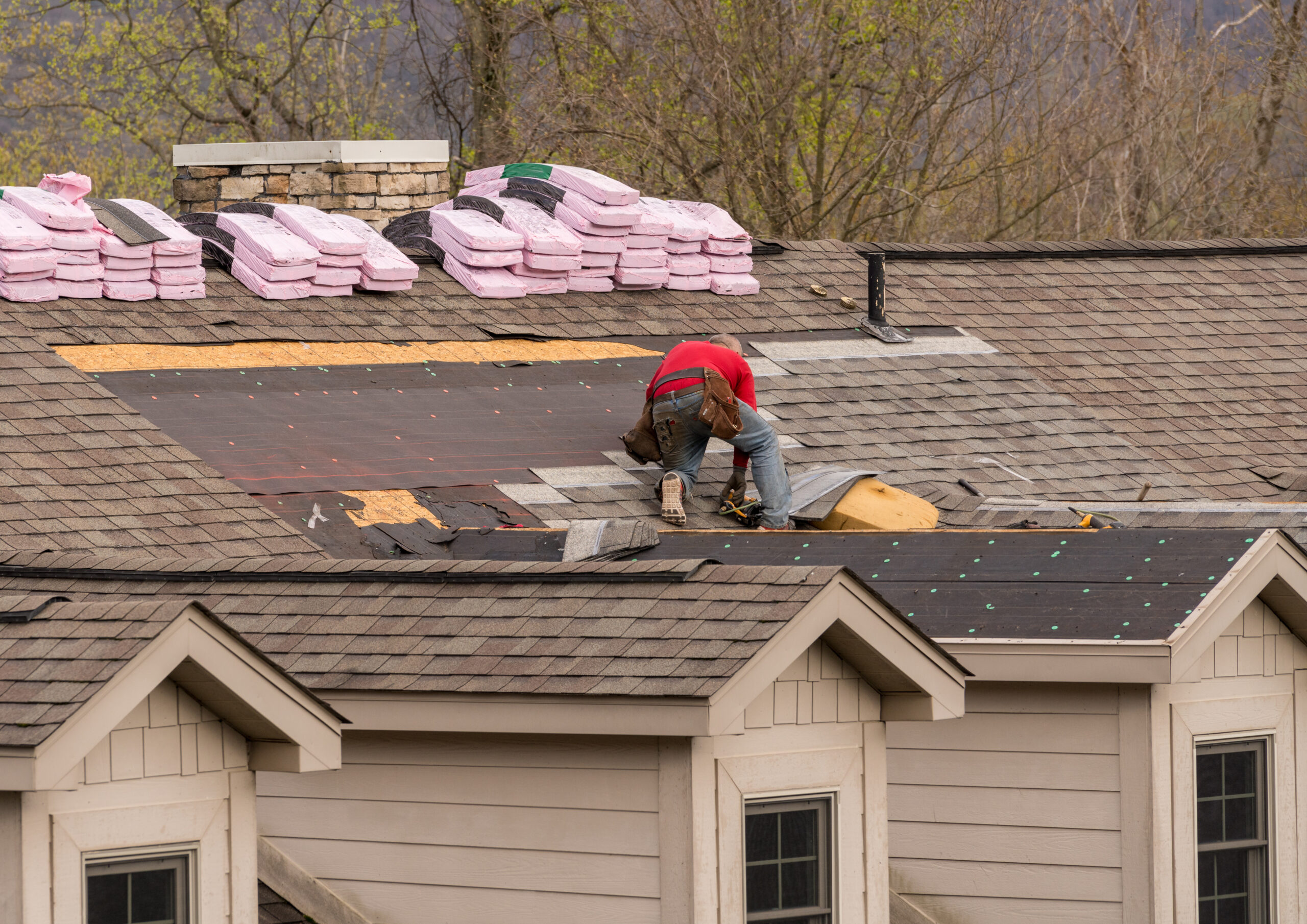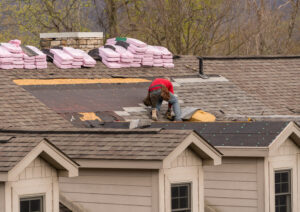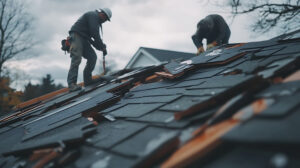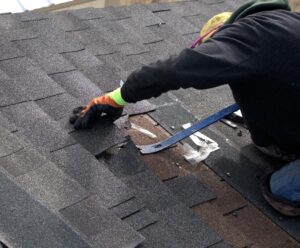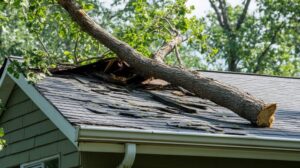Choosing the right roof color and material does more than improve your home’s look. It can also save you money on energy costs. At Olympic Roofing, we help homeowners in Massachusetts and New Hampshire choose energy-efficient roofing systems. These roofs reduce heat absorption, reflect sunlight, and lower energy bills all year.
If you’re repairing an older roof or building a new home, keep in mind the impact of your heating and cooling costs. This knowledge can help you make smart investments.
Why Roof Color Matters in Energy Efficiency
The color of your roof plays a major role in how much heat your home absorbs. Dark-colored roofs tend to soak up more heat, which can increase indoor temperatures and raise your air conditioning costs in the summer. Light-colored roofs or roofs with a reflective coating can help keep your home cooler. They reflect sunlight away from the surface.
This idea is key to what we call a cool roof. A cool roof is a type of roofing system. It’s designed to stay cooler than a standard roof in the same conditions.
Best roof color for energy efficiency? Light grays, beige, light brown, and white are great choices for homes in Massachusetts. This is especially true for homes with good attic insulation. Good insulation helps keep a balanced temperature all year round.
Roofing Materials That Save Energy
Material choice is just as important as color. Some roofing materials reflect more sunlight and hold less heat. This makes them great for homeowners who want to lower energy costs.
Here are some of the most energy-efficient roofing materials:
1. Metal Roofing
Metal roofs are a top choice for energy efficiency. They reflect sunlight more effectively than asphalt shingles and often feature reflective coatings to reduce heat gain. Metal also cools quickly at night, making it ideal for both hot summers and snowy winters in New England.
2. Asphalt Shingles
Standard asphalt shingles soak up more heat. However, newer cool asphalt shingles have special granules that reflect more solar energy. This makes them a better alternative to traditional roofs while keeping the classic look.
3. Tile or Slate
While less common in Massachusetts, tile and slate roofs can be energy efficient due to their thermal mass. They absorb and slowly release heat, which can help regulate indoor temperatures.
4. Synthetic Roofing Materials
Some modern synthetic roofing products are designed specifically for energy efficiency, offering excellent solar reflecting capabilities and long lifespans.
How a Roof Helps Lower Energy Costs
An energy-efficient roof helps regulate your home’s interior temperature, reducing the strain on your HVAC system. Here’s how it works:
- Reflecting sunlight: Keeps the roof surface cooler and reduces indoor heat gain.
- Insulating properties: High-quality materials can limit heat transfer between the attic and living space.
- Ventilation support: A well-designed roofing system works with your attic vents to maintain steady airflow and temperature.
These factors lower the need for too much heating and cooling. This leads to energy savings and more comfortable living.
Roofing in Massachusetts: Climate Considerations
Here in Massachusetts and southern New Hampshire, homeowners need a roof that performs well in both cold and warm conditions. During the winter, a roof that retains some heat can help melt snow and prevent ice dams. In the summer, that same roof should reduce heat absorption to keep your home cool.
Olympic Roofing helps you choose the right materials and roof color. They consider your home’s location, slope, and sunlight exposure.
The Long-Term Benefits of Energy-Efficient Roofing
Investing in energy efficient roofing goes beyond lowering your monthly energy bills. It also:
- Extends the lifespan of your roof by reducing heat-related wear.
- Increases your home’s resale value by boosting curb appeal.
- Helps reduce your carbon footprint.
- May qualify for energy efficiency rebates or incentives in Massachusetts.
If you are planning to replace your roof, choose energy-efficient materials. They can add value for many years.
Choosing the Right Roofing System for Your Home
At Olympic Roofing, we help homeowners choose the type of roof that meets their performance, style, and energy goals. Our team has many years of experience. We install asphalt shingles, metal roofing, and reflective roof coatings. We work in the North Shore and nearby areas.
We also provide free roof inspections. This helps you see if your roof is causing high energy costs. It can also show if a better roof could help save money.
Frequently Asked Questions About Energy Efficient Roofing
1. What is the best roof color for energy efficiency in Massachusetts?
Light-colored roofs, such as white, light gray, or beige, are typically best for energy efficiency. They reflect more sunlight and reduce heat absorption, helping your home stay cooler in the summer.
In Massachusetts, a balanced approach is best. Choose a light or medium-colored roof. This helps with energy use in both summer and winter.
2. Are metal roofs more energy efficient than asphalt shingles?
Yes, metal roofs are generally more energy efficient than traditional asphalt shingles. Metal reflects solar radiation and often comes with a reflective coating, which helps lower roof surface temperatures. They’re especially effective in reducing summer cooling costs and can be a great long-term investment for homes in New England.
3. Can a new roof really lower my energy bills?
Absolutely. Upgrading to energy-efficient roofing materials can lower heat gain in summer. It also helps keep attic temperatures steady in winter. This leads to less strain on your HVAC system and lower heating and cooling costs throughout the year.
4. What is a cool roof, and do I need one?
A cool roof is designed to reflect more sunlight and absorb less heat than a standard roof. These roofs often use materials or coatings with high solar reflectance. If your home gets a lot of sunlight or you worry about high energy bills, a cool roof might be a good choice.
5. Does roof insulation matter as much as the roofing material?
Yes—insulation and ventilation are just as important as your roofing material. A well-insulated attic prevents heat from transferring into or out of your living space. When paired with the right roofing system, insulation helps maintain indoor comfort and improve energy efficiency year-round.
Final Thoughts
If you want to save on heating and cooling costs, consider upgrading to an energy-efficient roof. This can also make your home more comfortable. Plus, it can improve the appearance of your home.
With the right colors, materials, and skilled installation, your roof can do more than keep out the weather. It can also help you save money every year.
Call Olympic Roofing for an Energy Efficient Roof Assessment
Want to know if your roof is helping or hurting your home’s energy performance? Contact Olympic Roofing today for a free consultation. Our experts can inspect your roof.
They will explain your options. They can also recommend the best roofing system to save energy in New England’s unique climate.

